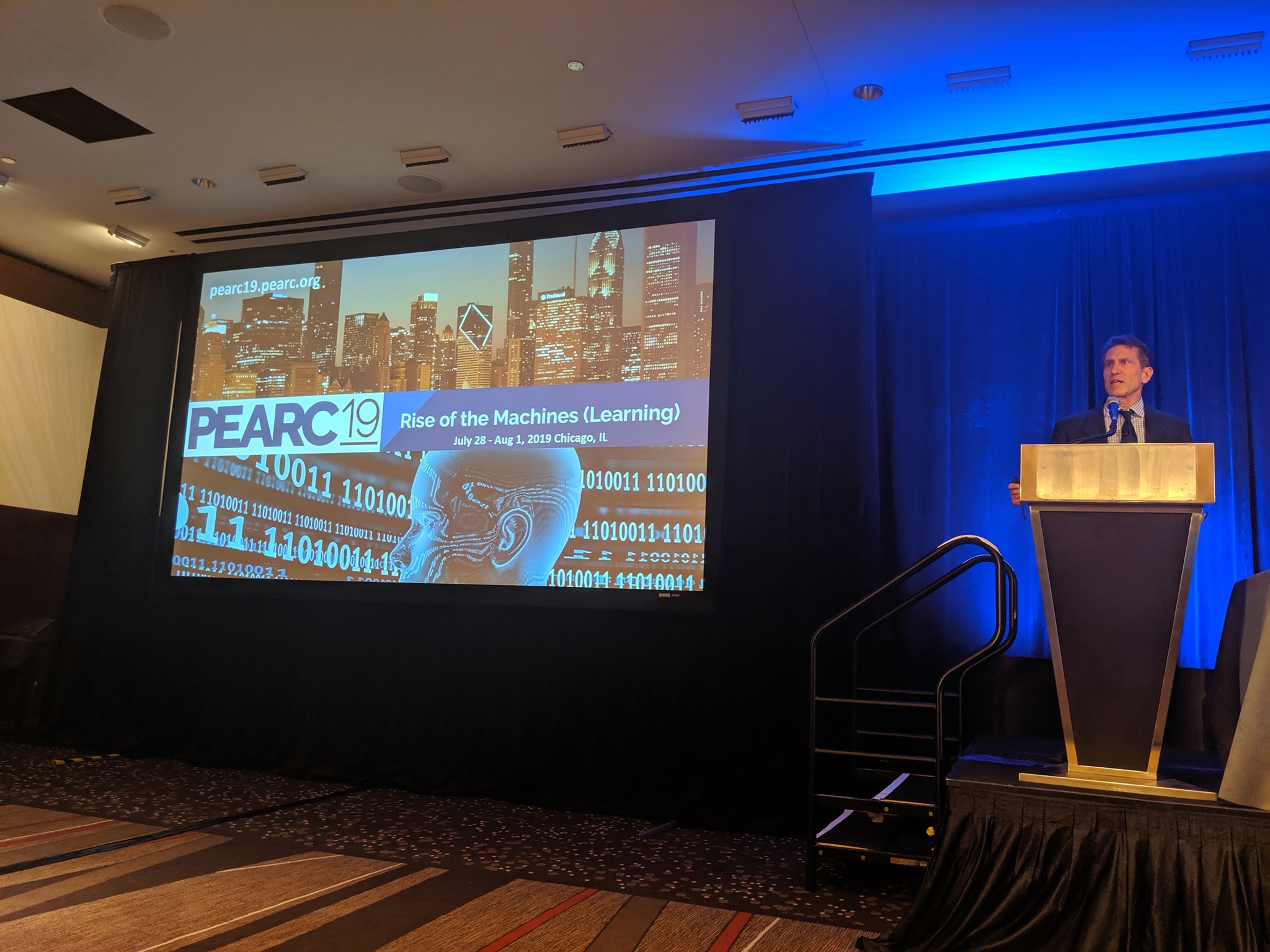Exploring disruptive technologies in machine learning and HPC at PEARC19
In late July/early August, I travelled to Chicago, Illinois to attend the annual Practices and Experiences in Advanced Research Computing (PEARC) Conference.
The conference series provides a forum for participants in the research computing community to discuss challenges, opportunities, and solutions in ‘cyberinfrastructure’ (aka eResearch; Advanced Research Computing, Research IT). PEARC19 hosted more than 800 registrants, and more than 100 student attendees.
This year's theme was ‘Rise of the Machines (Learning)’ and was kicked off with an inspiring keynote from Rick Stevens (Associate Laboratory Director for Computing, Environment and Life Sciences) at Argonne National Laboratory, titled ‘AI for Science’. HPCWire compiled a nice summary of his talk here.
In addition to attending sessions, I presented a poster titled, ‘Growing researchers’ computational skills to meet future needs: a New Zealand Case Study’, which showcased how NeSI has approached training since its inception in 2011. (An extended abstract is available in the conference proceedings, or check out the Kubke Review for analysis).
Over the course of the week, the programme covered a range of topics, including facilitating machine learning adoption, managing clusters, cybersecurity, science gateways, and managing software stacks, to name a few. My personal highlights stemmed from conversations and sessions on maturity models for HPC centres, building HPC centre teams, Research Software Engineers activity in the US, and measuring research impact from your services.
Following the conference, I was hosted by Ian Foster, Director of Data Science and Learning Division at Argonne National Laboratory. I met various members of the team to learn about how Argonne National Laboratory approached data science & learning, and Advanced Research Computing (via its Argonne Leadership Computing Facility) with a focus on user support, training, computational science, user experience, and industry engagement.
The scale at which Argonne works is phenomenal yet many of the challenges faced by both the users and those providing the services are the same as we have in New Zealand.
Overall, I found the event to be extremely valuable and gleaned many tactical gems to be applied back within NeSI to improve both the user experience, as well as the experiences of our specialised team.






